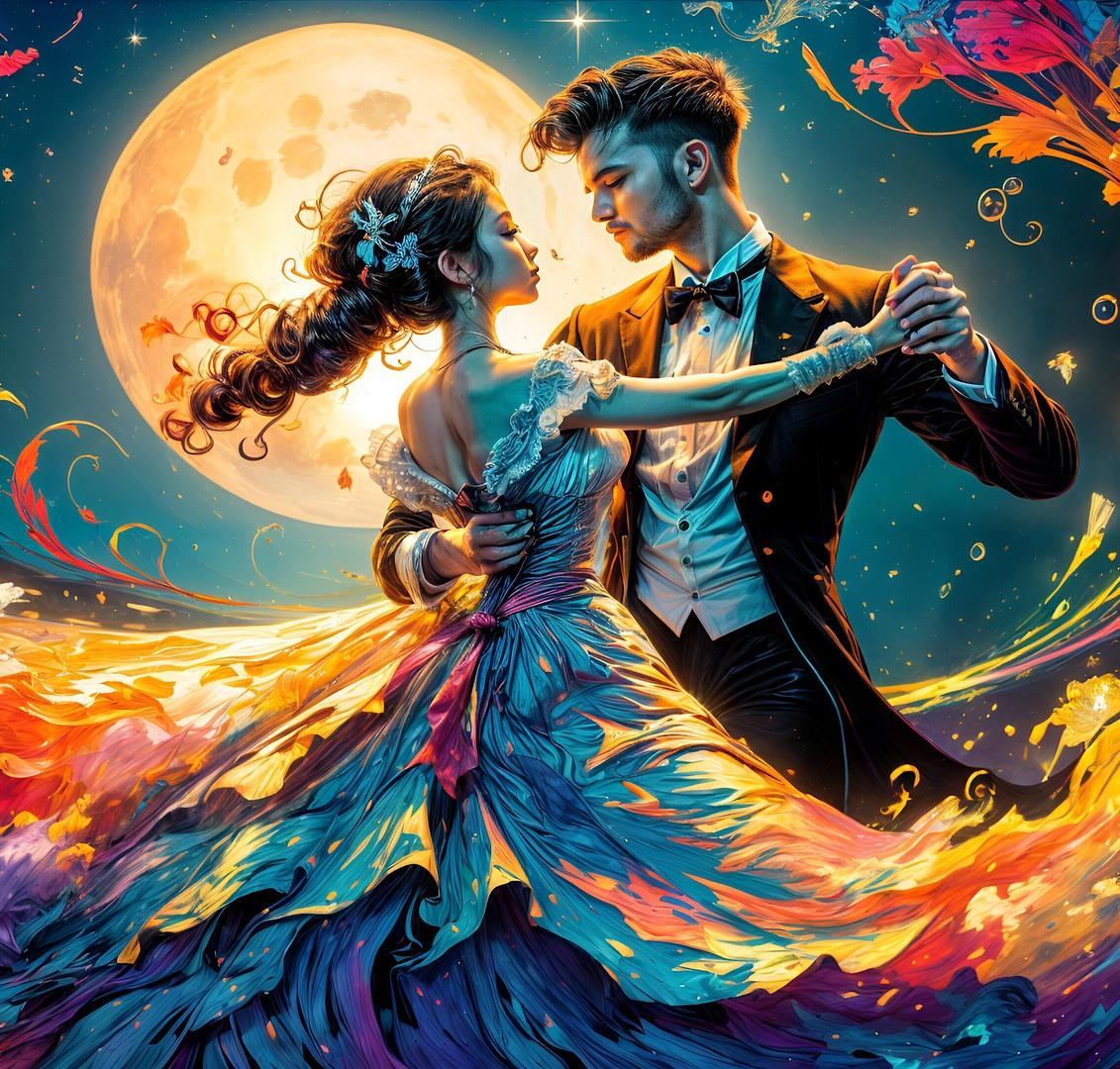Mistaking Infatuation for Love: The Beautiful Illusion That Starts Every Romance
We’ve all been there. That intoxicating rush when someone new enters our life, when every text message sends our heart racing, when we can’t stop thinking about them, when they seem absolutely perfect in every way. We call it love, but what we’re actually experiencing is something else entirely: infatuation. And while it might feel like the real thing, understanding the difference between infatuation and love can save us from heartbreak and help us build relationships that truly last.
The Fantasy We Create
Infatuation is, at its core, a fantasy. It’s not about the real person standing in front of us, but rather an idealized version we’ve constructed in our minds. We take the limited information we have about someone—their smile, their sense of humor, the way they look at us—and we fill in the gaps with our hopes, dreams, and desires. This prospective partner becomes a blank canvas onto which we project our ideal mate. They’re not just attractive; they’re perfect. They’re not just funny; they’re the funniest person we’ve ever met. Every small gesture becomes laden with meaning, every compatibility feels like destiny. We focus obsessively on their positive qualities while conveniently overlooking or minimizing any potential red flags or incompatibilities. This isn’t deception—it’s human nature. Our brains are wired to form these intense attachments, to see potential partners through rose-colored glasses. The positive bias we develop isn’t a character flaw; it’s a feature of how we bond with others.
The Emotional High
This obsessive focus on an unrealistic ideal produces a genuine emotional high. The neurochemicals flooding our system—dopamine, norepinephrine, oxytocin—create a state that’s not unlike addiction. We’re literally intoxicated by the other person, or more accurately, by our fantasy of them. During this phase, we experience euphoria when we’re with them and intense longing when we’re apart. We lose our appetite, can’t sleep, and find ourselves daydreaming constantly. Time seems to both slow down and speed up when we’re together. Everything feels more vivid, more meaningful, more alive. This is the stuff of poetry and love songs, the feeling that has launched a thousand ships and inspired countless works of art. It’s powerful, all-consuming, and absolutely exhilarating.
When Reality Dawns
But here’s the inevitable truth: reality always dawns. It has to. As we spend more time with someone, the real person begins to emerge from behind the projection we’ve created. They have annoying habits. They have bad days. They have opinions that don’t align perfectly with ours. They’re not a fantasy—they’re a human being, complete with flaws, insecurities, and complexities. Each small revelation chips away at the ideal we’ve constructed. The way they chew their food. Their relationship with their family. How they handle stress. Their actual sense of humor when we’re not both on our best behavior. None of these things make them a bad person, but they do make them a real person, and a real person will never match up to the impossible standard we’ve set in our minds. As the fantasy erodes, so does the emotional high. The texts don’t give us butterflies anymore. We notice things that irritate us. The conversation feels more difficult. Where once we saw only perfection, we now see ordinary humanity—and sometimes, we’re disappointed.
The Implosion
For some relationships, this erosion of idealization leads to a sudden implosion. The positive bias collapses entirely, and with it, the emotional attachment we thought was unshakeable. We may find ourselves wondering, “What did I ever see in this person?” or “How did I miss all these red flags?” This can be painful and confusing. We feel foolish for being so convinced this was “the one.” We might blame ourselves for being naive or blame our partner for not being who we thought they were. But really, what’s happened is simply that infatuation has run its natural course and reality has taken its place. This is the point where many relationships end. When the intoxication wears off and we’re left facing an actual person rather than our projection, we decide the connection isn’t real and move on to seek that high with someone new. It’s a pattern that can repeat endlessly if we don’t understand what’s happening.
The Necessary Illusion
Here’s what’s crucial to understand: infatuation isn’t the enemy. It’s not a mistake or a weakness. In fact, it’s absolutely necessary. Think about it practically. If we saw prospective partners with completely clear eyes from the beginning—every flaw, every incompatibility, every challenge that relationship would face—would we ever commit? The rational answer might often be no. Building a lasting relationship requires work, compromise, and vulnerability. It requires us to take a leap of faith with another imperfect human being. Infatuation provides the initial momentum we need to take that leap. It forms a bond strong enough that we’re willing to invest in getting to know someone deeply. It creates the emotional glue that holds us together long enough to discover whether there’s something real underneath the fantasy. Without that initial rush, that feeling of having found something special, we might never give relationships the chance they need to develop into genuine love. Infatuation is the spark that lights the fire—and every fire needs a spark to begin.
From Infatuation to Love
The question, then, isn’t whether we’ll experience infatuation—we will—but what happens when the fantasy begins to fade. Real love is what can emerge on the other side of infatuation. It’s built not on projection and idealization, but on genuine knowledge of another person. It’s choosing to stay when you see the flaws. It’s appreciating someone not despite their humanity but because of it. It’s building something together based on who you both actually are, not who you imagined you might be. This transition requires a conscious choice. When reality dawns and the ideal erodes, we have to decide whether there’s enough real connection, compatibility, and commitment to build on. Sometimes there is, and sometimes there isn’t—and both outcomes are okay. Love is steadier than infatuation, less dramatic but more sustaining. It’s built on trust, respect, shared values, and genuine affection for the real person in front of you. It grows deeper over time rather than burning bright and fast. It doesn’t give you the same high that infatuation does, but it gives you something better: a true partnership with someone you actually know.
Read more about building real love here…
Embracing the Journey
Understanding the nature of infatuation doesn’t diminish its magic. Those early days of a relationship, when everything feels electric and possible, are still beautiful and meaningful. They’re just not the whole story. Infatuation creates an initial bond strong enough to hold as a foundation to build on. The key is to enjoy infatuation for what it is—a thrilling beginning—while remaining conscious that it’s not the destination. Let yourself feel the excitement, savor the butterflies, and enjoy seeing someone through that rosy lens. But also remember that this is just the first chapter. When reality starts to seep in, don’t panic and don’t run. That’s not the relationship failing; that’s the relationship beginning. This is when you’ll discover whether you’ve found not just someone to be infatuated with, but someone to love. The fantasy was necessary to bring you together. Now it’s time to find out what’s real.
If you found value in this article, please comment to let us know that we’re making a difference.
If you have specific questions, you can post them in the comments below, contact us here, or email us directly at email@exponentiallifeinternational.com.
To connect with us about our online courses or working with us directly you can contact us here, or shoot us an email at email@exponentiallifeinternational.com.




0 Comments